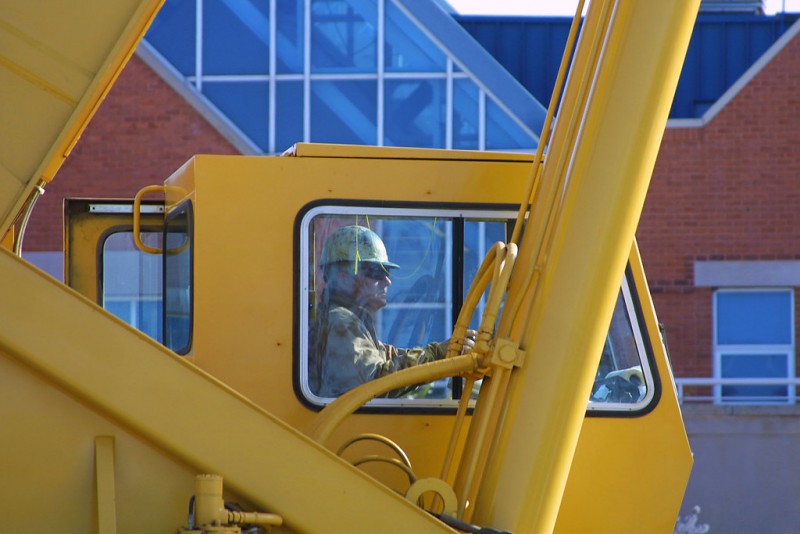
Becoming a crane operator from scratch might seem like a daunting task, but the rewarding nature of the job makes the journey well worth it. Crane operators play a vital role in construction, logistics, and various industries that require heavy lifting and precise positioning. In the following sections, we will break down the steps you can take to achieve your dream of becoming a crane operator, even if you don't have any prior experience in the field.
Understanding the Role of a Crane Operator
Before diving into the training and education required, it's essential to understand the responsibilities and challenges that crane operators face on a daily basis. Crane operators are responsible for operating and maintaining cranes, ensuring that materials are lifted, moved, and placed accurately and safely. They work closely with construction teams and follow strict safety protocols to prevent accidents and ensure smooth operations.
Research and Education
Learning About Different Types of Cranes
The world of crane operation is diverse, with various types of cranes designed for specific tasks. Research and familiarize yourself with common crane types, such as mobile cranes, tower cranes, and overhead cranes. Understanding their functions and applications will give you a solid foundation as you progress in your journey.
Enrolling in Crane Operator Training Programs
One of the most effective ways to gain the necessary skills is by enrolling in accredited crane operator training programs. These programs offer a comprehensive curriculum that covers crane operation techniques, safety procedures, load calculations, and equipment maintenance. Look for programs that provide hands-on training using real equipment.
Obtaining Necessary Licenses and Certifications
To legally operate cranes, you will need to obtain the appropriate licenses and certifications. The requirements vary by location, so research the regulations in your area. Generally, you'll need to pass written exams and practical assessments to demonstrate your competence as a crane operator.
Building Practical Skills
Gaining Hands-On Experience through Apprenticeships
Hands-on experience is invaluable in the journey to becoming a skilled crane operator. Consider seeking apprenticeship opportunities with construction companies or crane rental services. Apprenticeships provide you with the chance to learn from experienced operators and apply your knowledge in real-world scenarios.
Developing Spatial Awareness and Depth Perception
Crane operators must have excellent spatial awareness and depth perception to maneuver heavy loads safely. Engage in activities that challenge and improve these skills, such as video games or simulations that simulate crane operation scenarios.
Mastering Crane Safety Protocols
Safety is paramount in crane operation. Study and internalize safety protocols, such as proper load securement, communication procedures, and emergency protocols. A strong focus on safety will not only protect you but also contribute to your reputation as a reliable crane operator.
Navigating the Job Market
Crafting an Impressive Crane Operator Resume
When applying for crane operator positions, create a well-structured resume that highlights your training, certifications, and any relevant experience, even if it's not directly related to crane operation. Emphasize transferable skills like attention to detail, problem-solving, and teamwork.
Exploring Job Opportunities and Networking
Tap into your professional network and attend industry events to connect with potential employers. Online job boards and industry-specific websites are also valuable resources for job openings. Consider reaching out to construction companies directly to inquire about job opportunities.
Acing the Interview and Landing the Job
Highlighting Transferable Skills and Traits
During interviews, focus on how your transferable skills align with the requirements of the job. Highlight your ability to work under pressure, your attention to detail, and your commitment to safety. Showcase instances where you've demonstrated quick decision-making and adaptability.
Demonstrating Your Commitment to Safety
Employers highly value crane operators who prioritize safety. Share examples of how you've adhered to safety protocols in previous roles or training scenarios. Discuss your understanding of the potential risks associated with crane operation and your proactive approach to mitigating them.
On-the-Job Success and Continued Learning
Embracing Continuous Skill Enhancement
The learning doesn't stop once you secure a job as a crane operator. Embrace opportunities for continuous skill enhancement, whether through additional training programs, workshops, or certifications. Staying up-to-date with industry advancements will keep you at the top of your game.
Staying Updated with Industry Trends and Technology
The field of crane operation is evolving with technological advancements. Stay informed about the latest industry trends, such as crane automation and digital tools for load monitoring. Familiarizing yourself with these developments can give you a competitive edge.
Advancing Your Career
Pursuing Specialized Crane Operation Roles
As you gain experience, you might consider specializing in a specific type of crane or operation. Specialization can open doors to more specialized and higher-paying roles within the industry.
Climbing the Ladder to Supervisory Positions
With dedication and experience, you could progress to supervisory or managerial positions. These roles involve overseeing crane operations, coordinating teams, and ensuring projects are executed smoothly.
Becoming a crane operator without prior experience is an achievable goal with the right strategy and determination. By following the steps outlined in this guide, you can embark on a rewarding career path in crane operation. Remember that persistence, continuous learning, and a strong commitment to safety will contribute to your success in this dynamic and essential industry.
Standing Tall: The Role of Height in Cristiano Ronaldo's Football Legacy